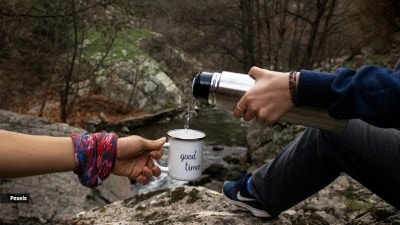The Tokyo snowman
It was getting more and more curious. We were driving back home on a cold February morning after a skiing trip. The weekend had been spen...

It was getting more and more curious. We were driving back home on a cold February morning after a skiing trip. The weekend had been spent on the snow-covered slopes of Mt Bandai in Fukushima-ken, north of Tokyo, and the exertion had taken its toll. All five of us 8212; Akira and Michiyo Honda, their sons Makoto and Isamu, and I 8212; had tried making polite conversation as we started out, but we had slowly drifted into absolute silence. It had snowed hard that weekend and the snow came down in thick flakes, bringing traffic almost to a standstill.
A detour was necessary before we hit the highway again, extending the four-hour journey to a full seven hours. We sank lower and lower into our seats as Akira San drove down treacherous mountain roads with impatient puffs at his cigarette.
The top of our jeep was covered by a thick layer of snow. But as we made our way towards Tokyo, the landscape began to change. White gave way to the grey-black of the snow-free roads and we all breathed a little easy. Thetemperature began to rise and, from time to time, a chunk of snow would break and slide down the side of the jeep. Every time this happened, 11-year-old Isamu would get worked up and ask his father to drive slower. With each thud he implored his father more urgently than before.
Really, it was most curious. Why was a Japanese youngster, who was no stranger to snow, so keen to carry this little bit home? Perhaps because that year it hadn8217;t really snowed in Saitama-ken where we stayed and little Isamu wanted to take a gift8217; back home to his friends. After all, youngsters love to play in the snow, don8217;t they?
After the long drive, we were home at last. The Hondas dropped me at my hostel at Kita Urawa on their way home to Kawaguchi. Even as I was thanking them for the enjoyable weekend, I could see Isamu frantically looking for a plastic bag and filling it with snow that had survived the journey. Then he thrust the bag into his mother8217;s hand and whispered something in her ear. Just as I was about to leave,Michiyo San handed the bag to me. quot;Would you like to take back some snow?quot; she said while Isamu looked on shyly.
quot;Well8230; er8230; not really,quot; I muttered, remembering how keen Isamu was to carry it back home. quot;I8217;d like to leave it for Isamu.quot; quot;It was for you,quot; Michiyo San explained. So that was the reason for Isamu8217;s apparently inexplicable behaviour. Knowing that I was from a country where most people never experience snowfall, he perhaps wanted me to make the most of it.I returned to my room clutching the most unique gift I have ever received 8212; a bagful of snow. Tired to the bone, I ran the tap and waited impatiently for the bath to fill. All I wanted to do was sink into a tub of hot water and then tumble into bed. But I was still holding the bag of snow. What was I to do with it?
Unwilling to just chuck away what Isamu had taken trouble to bring home especially for me, I opened the bag and poured the contents onto a dinner plate. Then I took some in my hands, rolled it around and, soon, a little snowmanwas beginning to take shape. Both bath and bed were now completely forgotten. With a ballpen stuck through the sides for hands, and eyes and mouth made out of coloured paper, the snowman was ready. It was only one of its kind 8212; not standing outside in a cold field full of snow but in a warm cosy room, reposing comfortably on a dinner plate.
And so, thanks to a little Japanese boy, I made my first snowman when well past the snowman-making age. It was the warmest, most pleasant winter I have ever spent.
That was six years ago. Little Isamu must be a 17-year-old now. Perhaps he no longer makes snowmen. But I am sure he still plays Santa and spreads cheer in other ways, just as he did that year with a shy smile and a bagful of snow.
- 01
- 02
- 03
- 04
- 05































